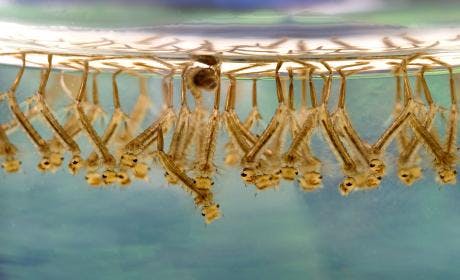Mosquito Control
Are you getting bitten by mosquitoes? Submit a service request here or call 650-344-8592 to report mosquitoes - one of our certified technicians will visit to investigate the source and stop the mosquitoes.

Why Control Mosquitoes?
Mosquitoes are more than a nuisance! They can carry and transmit diseases that can make people very sick. Even when they don’t transmit disease, their bites may be uncomfortable or become infected.
Controlling mosquitoes interrupts the disease transmission cycle and protects people from disease.
How We Control Mosquitoes
The District controls mosquitoes through a program of integrated mosquito management (IMM). This program focuses on controlling mosquitoes in their larval stage and preventing problems before they occur.
Larval control has many benefits:
- Lower toxicity. The pesticides used to control the larval stage are much less toxic to the environment and are highly specific to mosquitoes.
- Less pesticides. The pesticides are applied to a smaller area than would be required for treatment of adult mosquitoes.
- Less disease. Targeting immature mosquitoes kills them before they are capable of transmitting disease.
Sometimes, however, it is also necessary to control adult mosquitoes, such as when we find that they are carrying a disease that can be transmitted to humans.






